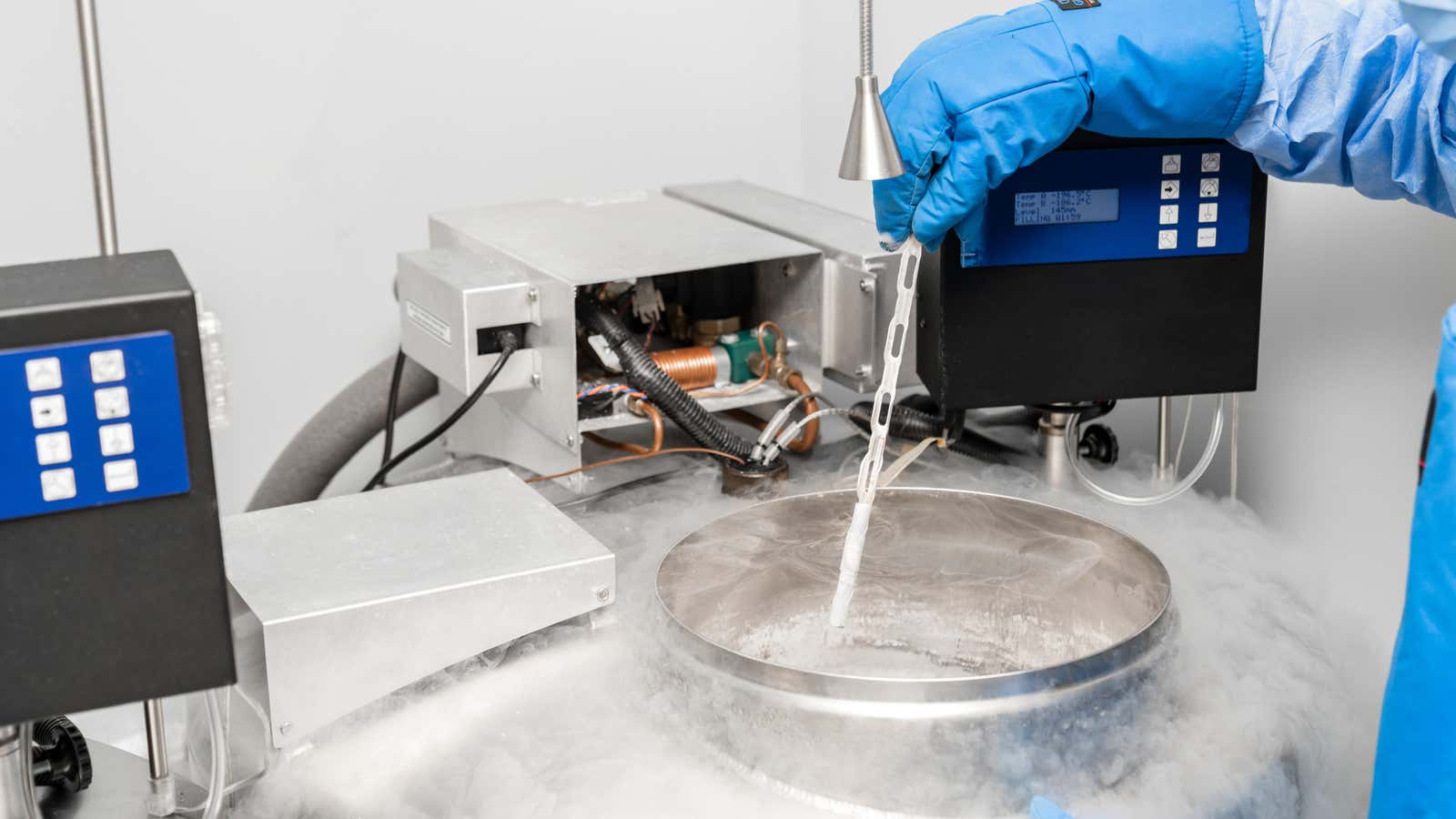When Is It Too Late to Freeze Eggs?

If you think you would like to conceive in the future but are not ready to do so right now, you may consider egg freezing for future use. A few years ago, Facebook and Apple made headlines when they offered their employees an egg-freezing benefit, apparently so they could focus on their careers now and then have a baby. But reality is more complicated.
Egg freezing was originally considered as an experimental method for people who were at risk of losing their fertility – perhaps women who were about to start cancer treatment. This is a similar process that occurs when a person donates their eggs . But over the past decade or two, it’s been marketed as a boss girl move, a thing you can do to focus on your career or take your time finding the right partner. (Our Jezebel friends have more information on problem marketing .)
Even if you know for sure that you want to freeze eggs, you have an important decision to make: when? A new study published in the journal Fertility and Sterility found that people who froze their eggs had a lower chance of getting pregnant, either because they didn’t freeze enough eggs or because they waited too long.
Chances may be better if you’re under 38
A new study of 543 people found that the best success rates were those who were under 38 when they froze their eggs and those who thawed at least 20 eggs when they were ready to try to conceive.
(First, to get 20 eggs, you may need more than one egg-freezing egg retrieval cycle. Each cycle costs about $10,000, according to the New York Times.)
However, egg freezing at an early age does not guarantee the birth of a child. Even in the best odds group in the study, the live birth rate was only 51%, and some needed more than one transfer cycle before they had a successful pregnancy. People who froze their eggs at an older age or who didn’t use as many eggs had lower success rates. The overall success rate was only 39% when people of all ages are included in the study.
An earlier study looked at this question differently: they used known success rates, but also took into account the age of the eggs themselves at the time they were used (their longer storage reduces the success rate) and the likelihood that a person would eventually want to use them frozen. eggs. This study found that egg freezing between the ages of 30 and 34 gives you the best chance of having a baby if you know you want to use the eggs.
But they also found that if you compare people who freeze their eggs with people who choose not to, you have a little more time. At the age of 37, freezing becomes the most cost-effective. The success rates are still quite high and it might make sense, and if you’ve reached the age of 37 and haven’t had a baby yet, you might want to freeze your eggs. (Remember, another possible scenario is that you think about egg freezing at age 32 and end up having a baby the old-fashioned way a few years later.)
So these studies show that if you’re going to freeze your eggs, you still have a good chance if you do it before you’re thirty-five years old. But egg freezing does not guarantee the birth of a child, and there are other risks and considerations that you should talk to your doctor about.